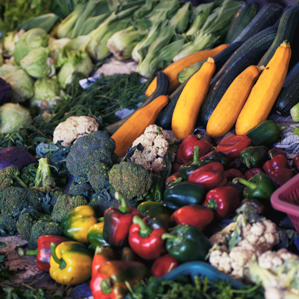There’s nothing quite like the satisfaction of growing your own food, and with a bit of planning and know-how, you can enjoy a bountiful harvest of fresh, nutritious produce right from your own backyard. Here are some tips to help you make the most of your vegetable garden:
1: Start with Healthy Soil
Good soil is the foundation of a successful vegetable garden. Before planting, enrich your soil with organic matter such as compost or aged manure to improve fertility and soil structure. Perform a soil test to determine nutrient levels and pH, and make any necessary amendments to ensure optimal growing conditions for your plants.

2: Choose the Right Plants
Select vegetable varieties that are well-suited to your climate, soil, and growing conditions. Consider factors such as sunlight exposure, water requirements, and mature size when planning your garden layout. Opt for disease-resistant and high-yielding varieties to maximize your harvest.

3: Practice Companion Planting
Companion planting is a time-honored gardening technique that involves planting complementary crops together to benefit each other. For example, planting aromatic herbs like basil or marigolds alongside tomatoes can help deter pests and promote healthier plants. Do some research on companion planting to discover the best combinations for your garden.
4: Provide Adequate Care
Once your garden is planted, it’s important to provide regular care and maintenance to ensure healthy plant growth. Water your plants deeply and consistently, mulch to conserve moisture and suppress weeds, and monitor for pests and diseases regularly. Consider using organic pest control methods whenever possible to minimize harm to beneficial insects and pollinators.

5: Harvest Regularly
Harvest your vegetables regularly to encourage continuous production and prevent over-ripening or spoilage. Pick fruits and vegetables when they are at their peak of ripeness for the best flavor and nutritional value, and enjoy the fruits of your labor fresh from the garden or preserved for future use.


Leave a Reply